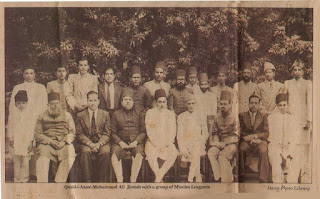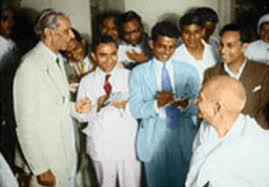To commemorate Allama Iqbal, I wish to illuminate the Central Iqbal Society, also recognized as Bazm-e-Iqbal or Bazm-e-Shaheen. This society was established shortly after the passing of Pakistan's spiritual patriarch, Sir Allama Iqbal, in his honour, by Nawab Bahadur Yar Jung. This esteemed society's primary aim was to champion Sir Allama Iqbal's literary legacy. The first president of this society was Nawab Bahadur Yar Jung who was succeeded by Nawab Hasan Yar Jung and the Vice President of this society was Moinuddin Cowlas up until the society's formal end in 1948.
The society carried out its works up until the 1948 Operation Polo. The Iqbal society played a key role in advancing the Pakistan Movement in Hyderabad Deccan and continued negotiations with the Nizam of Hyderabad until the annexation of Hyderabad.
While a comprehensive summary of this society's achievements is beyond the scope of this post, I will share the captivating photographs taken of the society as a testament to its legacy.
















